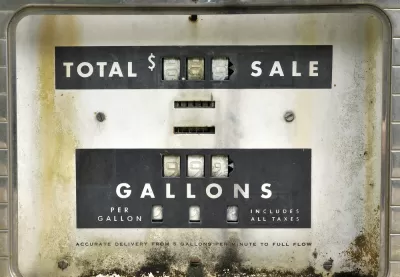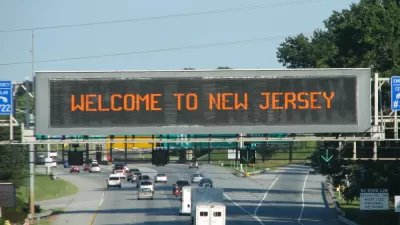The estate tax reduction, plus increasing the retirement income tax exemption, would be traded for an unspecified hike in the gas tax to keep the Transportation Trust Fund solvent. But the $400 million in tax cuts won't satisfy Gov. Chris Christie.

The Garden State's 14.5-cent gas tax (10.5 cent excise tax plus 4.0 cpg Petroleum Products Gross Receipts Tax) is the second lowest in the United States (after Alaska's), having not been raised since 1988, notwithstanding recent attempts to do so.
State Assembly Speaker Vincent Prieto (D-Hudson) crafted the latest 'tax tradeoff' strategy in response to proposals by Gov. Chris Christie that would eliminate the estate tax and raise the retirement income exemption. Christie has previously stated he would only support legislation to raise the gas tax if it was accompanied by tax reductions elsewhere. The tax issue has also prompted a debate about what is considered "tax fairness."
"Prieto said at a Statehouse news conference that he would 'be open' to phasing out or raising the exemption on the estate tax, but only as part of a deal on funding the Transportation Trust Fund, which runs out of money this summer and is largely funded by the gas tax," writes Samantha Marcus of NJ Advance Media for NJ.com.
According to an op-ed published Thursday in NJ.com, "The Transportation Trust Fund (TTF) is $16 billion in debt," write construction industry leaders Robert Briant Jr. and Jack Kocsis Jr.
The solution seems clear: If we can't borrow any more money, we need to increase revenue. Currently, the only solution that can raise enough money to fund the TTF, fix our roads, and begin chipping away at our debt burden is one that includes an increase to the gas tax.
Stay tuned...
FULL STORY: Prieto: No N.J. estate tax cut without transportation funding fix

Maui's Vacation Rental Debate Turns Ugly
Verbal attacks, misinformation campaigns and fistfights plague a high-stakes debate to convert thousands of vacation rentals into long-term housing.

Planetizen Federal Action Tracker
A weekly monitor of how Trump’s orders and actions are impacting planners and planning in America.

In Urban Planning, AI Prompting Could be the New Design Thinking
Creativity has long been key to great urban design. What if we see AI as our new creative partner?

King County Supportive Housing Program Offers Hope for Unhoused Residents
The county is taking a ‘Housing First’ approach that prioritizes getting people into housing, then offering wraparound supportive services.

Researchers Use AI to Get Clearer Picture of US Housing
Analysts are using artificial intelligence to supercharge their research by allowing them to comb through data faster. Though these AI tools can be error prone, they save time and housing researchers are optimistic about the future.

Making Shared Micromobility More Inclusive
Cities and shared mobility system operators can do more to include people with disabilities in planning and operations, per a new report.
Urban Design for Planners 1: Software Tools
This six-course series explores essential urban design concepts using open source software and equips planners with the tools they need to participate fully in the urban design process.
Planning for Universal Design
Learn the tools for implementing Universal Design in planning regulations.
planning NEXT
Appalachian Highlands Housing Partners
Mpact (founded as Rail~Volution)
City of Camden Redevelopment Agency
City of Astoria
City of Portland
City of Laramie




























